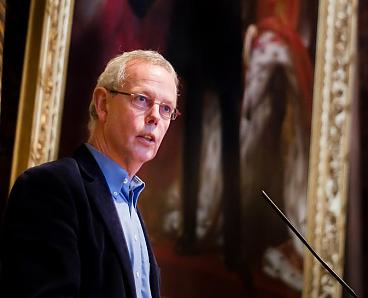Hiroshima, Nagasaki – never again!
Hiroshima, Nagasaki – never again!
Just over 73 years ago, on 6th August 1945 – so within the memory of the very oldest people still alive - the Japanese city of Hiroshima was virtually wiped from the face of the Earth by a single nuclear bomb. In the seven decades which have passed since that historic event, the world is replete with bombs which make those dropped on Hiroshima and, three days later, on Nagasaki, look like fire-crackers. We should remember, however, that even these relatively small bombs were terrifyingly destructive weapons. Many people died instantly, but those casualty figures were doubled within a few months, so that the number of deaths from the bombings' acute effects may have been well over 200,000, with even the lowest estimates reaching two-thirds of that figure. Lingering radiation sickness would kill many more as the years went by. SP Senator Tiny Kox, who is also a member of the Dutch delegation to the Parliamentary Assembly of the Council of Europe, wants to ensure that these weapons of mass destruction will never be used again. “I want to see the government sign up to the international campaign to ban nuclear arms,” he says.
“Across the world people are taking action,” Kox continues. “Like me, they are determined to see a world-wide ban on nuclear weapons, in line with the United Nations treaty forbidding their construction, storage or use.” Last year's UN conference called to negotiate such a treaty resulted in The Treaty on the Prohibition of Nuclear Weapons (TPNW) which bans signatories from all forms of activity linked to nuclear weapons, including research and development, testing, producing or acquiring, stockpiling and use, as well as the threat to deploy them. 122 states voted in favour of its adoption.

The Treaty has been open to signature since last September. The activists who instigated and led the successful campaign for a ban, coordinated by the International Campaign to Abolish Nuclear Weapons (ICAN), have in the meantime been awarded the Nobel Prize for Peace in recognition of their sustained fight to rid the world of this scourge.
Kox wants the government to change its mind and join the more than fifty states which have already signed the Treaty. “Unfortunately Prime Minister Mark Rutte is refusing even to consider this. During the Senate debate on the government's programme shortly after the Treaty's text was agreed, he told me that such an international agreement would be in conflict with the Netherlands' obligations under the NATO treaty. I wanted to put a motion forward for an enquiry into whether this was actually the legal position, but the Prime Minister asked me to postpone this until there was greater clarity. I would say that seventy-three years on from the bombing of Hiroshima and Nagasaki, and having been witness to the catastrophic consequences which these actions had, we have enough clarity to say that we must rid the world of nuclear weapons, an opinion shared by a clear majority of the Dutch people.”
On the Senate’s return from recess in September, therefore, Kox intends to present his motion and call fro a vote. “We don't want to see any more Hiroshimas, any more Nagasakis,” he says. “Never again!”
- See also:
- World
